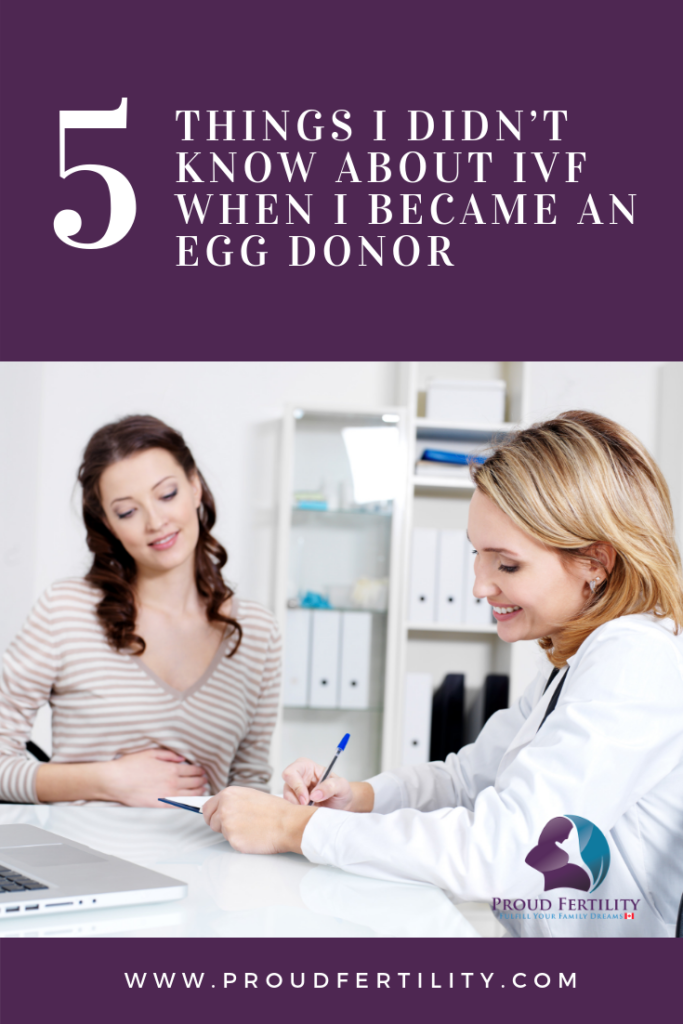It’s Not as Easy as Giving Up Your Eggs
The first steps include finding an egg donor agency, filling out a profile, multiple and varied medical testing, the collection of genetic history, paperwork and a psycho-social evaluation. These first stepping-stones on your egg donation journey are necessary to ensure you are fully informed and consenting to the donation and use of your own genetic material. Finding the right donor agency is also crucial. The agency should be experienced, compassionate, and place a high value on open communication and support. You should NEVER be asked to pay out-of-pocket costs for any required testing and should be considered a red flag during the agency-choosing process.
You Have to be “Chosen” to Become an Egg Donor
Surprise! Eggs aren’t just donated and kept on ice. Potential egg donors ‘sign-up’ with a donor agency, who then provides Intended parents with many profiles to review. Ultimately, they select the one they feel is the best fit for them. Only when it’s a confirmed match, does the egg donation process intensify, including medications to prepare the reproductive system for egg removal.
The Risks of Becoming an Egg Donor
With the advances and safety of modern medicine, egg donation retrieval should have no effect on a donor’s future decisions about their own reproductive health or desire to become pregnant.
During the preparation for the egg retrieval, common complaints are feeling bloated and a distinct lack of energy. Your body is working overtime to produce the necessary eggs, so those symptoms are to be expected. Another risk of egg donation is Ovarian Hyperstimulation Syndrome (OHSS) which can cause dehydration, diarrhea, pain, nausea and vomiting. Symptoms on the milder end of the OHSS spectrum are easily manageable, with more serious symptoms requiring a hospital visit. Approximately 14% of donors may require hospitalization, which is comparable to rates in pregnant and non-pregnant women.

The Medical Process of Egg Donation Explained
In order to donate your eggs, a 10-12 day self-injection protocol is a typical expectation. The hormone injections stimulate the body into creating more eggs than are normally produced within a reproductive cycle. Bloodwork and ultrasounds are commonly required. The follicle growth is monitored by ultrasound and when the growth is sufficient, surgery is used to retrieve the eggs. A thin needle is inserted through the vagina wall and into the ovaries in order to remove the eggs. Some women do report tiredness and menstrual-like cramps, but otherwise, recovery is quick and easy.
Before I Became an Egg Donor I Had No Idea How Expensive it is for Intended Parents
The cost! As someone who would never have the need to use IVF personally, I was taken aback at the financial burdens intended parents face. In Canada, Traditional IVF can be as much as $10,000 to $15,000 per cycle – with many intended parents requiring more than one cycle. Easily the amount required for a vehicle, post-secondary education, or down payment on a home. Having this dollar figure in mind, allowed me to empathize even further with my intended parent’s journey. This wasn’t an impulsive choice, nor an outrageous, whimsical dream. This was a deep-seated desire that they worked diligently to achieve. This was a sacrifice to obtain. They were ready, prepared and determined to love and bring their child into fruition, at any expense. They were already amazing parents I would hope they would be.
Ready to learn more about becoming an Egg Donor?
Complete an Egg Donor Interest Form and we will be in touch!
Are you ready to learn more about becoming a parent through surrogacy or egg donation?
Filling out an Intended Parent Interest Form is all it takes to get started.

